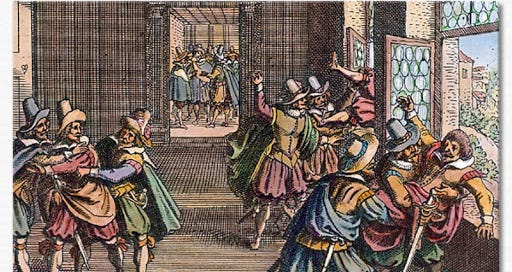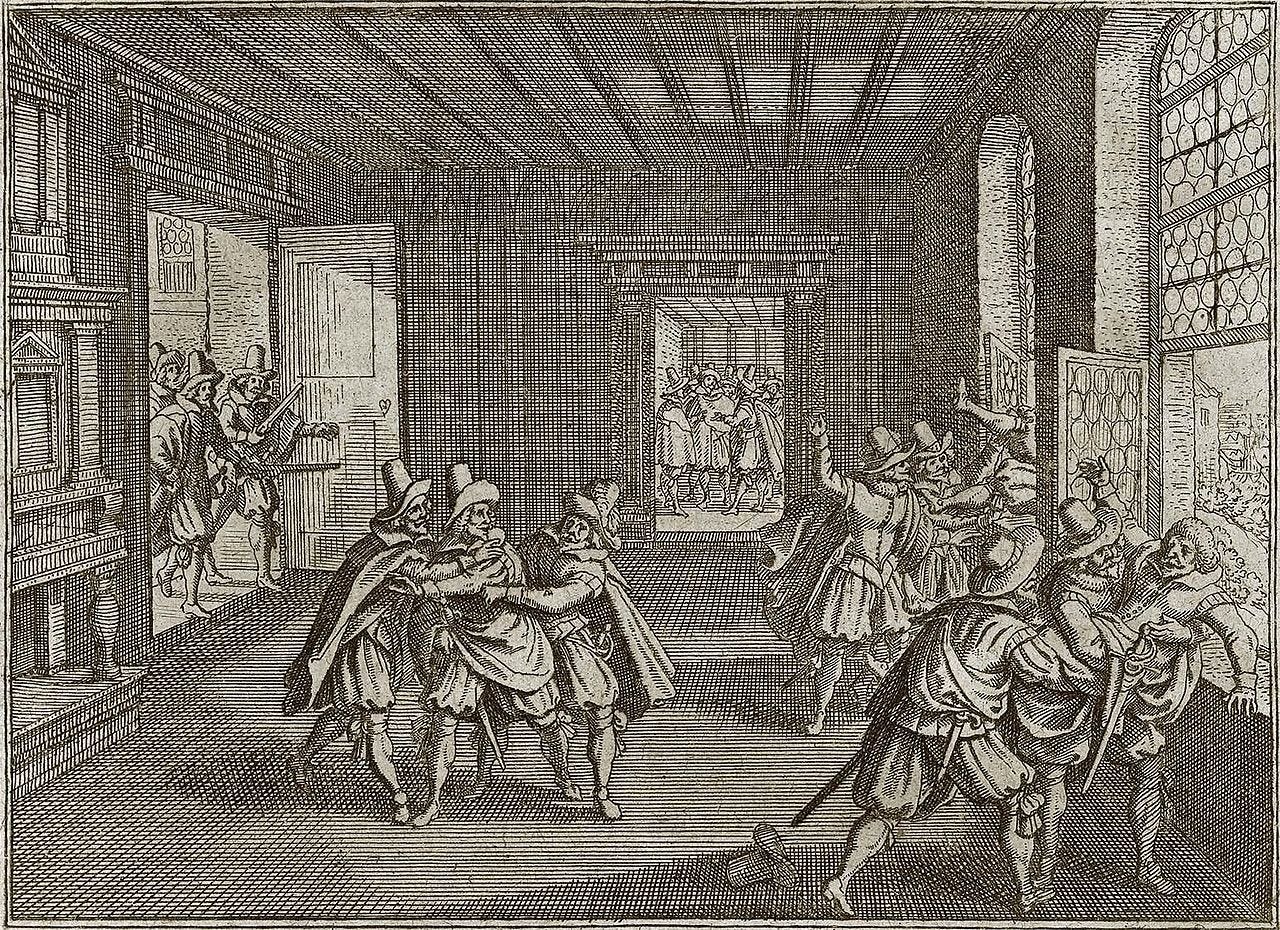English is a funny language. I mean, all languages are funny in their own way. But English is strange even by linguistic standards. Technically English is a branch of the Germanic language family, part of the larger Indo-European group that the majority of the world speaks (something close to 45% speak an Indo-European language as their first language. These include German (obviously), English, Spanish, Russian, Hindi, Persian (Iranian), Greek, and Punjabi.) Despite being Germanic in structure and syntax, English also shares many characteristics with Romance languages (another branch of Indo-European), in part due to the Norman Invasion of the British Isles in 1066. This is part of the reason that there are so many words of Latin derivation in English. Such as “defenestration,” which comes from the Latin “de” meaning “from” or “out of,” and “fenestra,” meaning “window.” It’s quite a language that needs a specific word to say “throw out of a window.” Yet English, via Old Norman via Latin, has just such a word. And it was on this date, 23 May 1618, that there was a Defenestration in Prague.
To be precise, this was the third defenestration, because when you’ve got a good idea, why only do it once. The first defenestration, on 30 July 1419, revolved around discontent about the direction of the Catholic Church, seen as corrupt, and the inequality between the peasants, the Church's prelates, and the nobility. In this defenestration, a church priest and his congregation stormed the city council chambers and threw out the burgomaster (mayor), and several council members, who were all killed in their fall. This was one of the precipitating events of the Hussite Wars, which is generally accepted to have lasted from 1419 to 1434, and was a conflict between pre-Protestant religious and secular reformers and Catholic authorities.
The second defenestration happened more than 60 years later on 24 September 1483. This was more conflict amongst religious and secular leaders, where another reformist group again stormed the neighborhood town halls and threw out the dead bodies of the burgomaster and council members. Hey, at least they were dead before the fall. The rage of the event showed church officials how upset people were and led to a tentative peace agreement and religious reconciliation in 1485.
By 1618 however, the Protestant Reformation had been in full swing for over a century. That began when Martin Luther published his 95 Theses on 31 October 1517. Prague was part of the Kingdom of Bohemia, which made up some of the domains of the Holy Roman Empire. Being such an ethnically and religiously diverse population, the Holy Roman Empire needed a way to control its subjects. Though the Empire was mostly controlled by the Catholic Hapsburgs, in a bid for tolerance signed the Peace of Augsburg in 1555. After all, wars are expensive and bloody. It was much easier to tax living subjects than dead ones. The Peace agreed not to impose their Catholicism on all their subjects, instead leaving it up to the regional princes. Much of Bohemia was Protestant, and their Hapsburg ruler granted them leniency and freedom of worship. Except in 1617, through political and familial machinations, Ferdinand II was elected King of Bohemia. He was staunchly anti-Protestant and a hard-line Catholic member of the Counter-Reformation. He ordered the building of Protestant chapels to be halted, then dissolved the estates of the people who opposed the order.

Protestant leaders, naturally, were rather upset. After meeting with the king’s officials, the Protestant lords defenestrated two royal governors and their secretary. Amazingly, all three men survived the 70-foot fall, whether through divine intervention as Catholics claim, or because they fell into a dung heap as Protestants claim, is a debate left to history.
Religious tensions were high, and soon Catholics and Protestants descended into the Thirty Years War, considered one of the longest and most destructive conflicts in European history. The war ended with the Peace of Westphalia in 1648, which, amongst other things, formally established the independence of the Dutch Republic and the Swiss Confederation, gave territorial concessions to Sweden, seriously weakened the absolute authority of the Holy Roman Emperor, and upheld the earlier Peace of Augsburg, granting religious freedom to Protestants of all stripes. Hey, throwing people out of a window works, and don’t let anyone (in Latin, English, or any other language) tell you different. It seems to work better than setting fires. Maybe.





